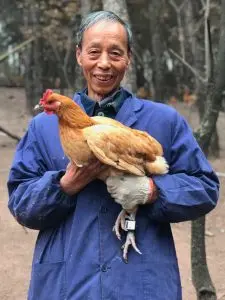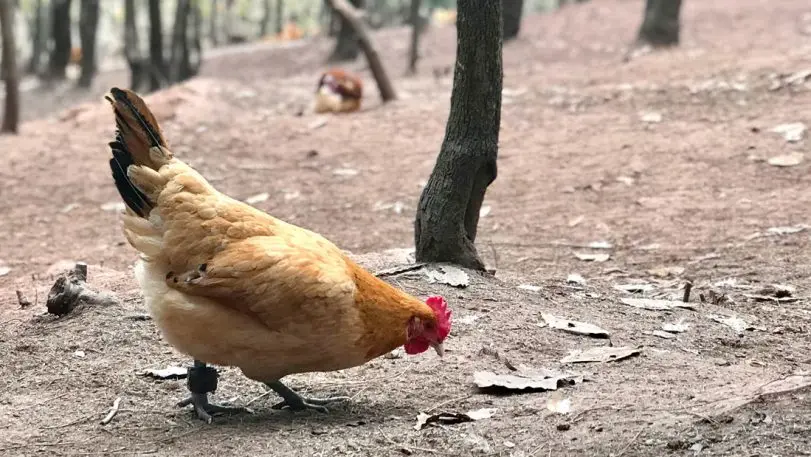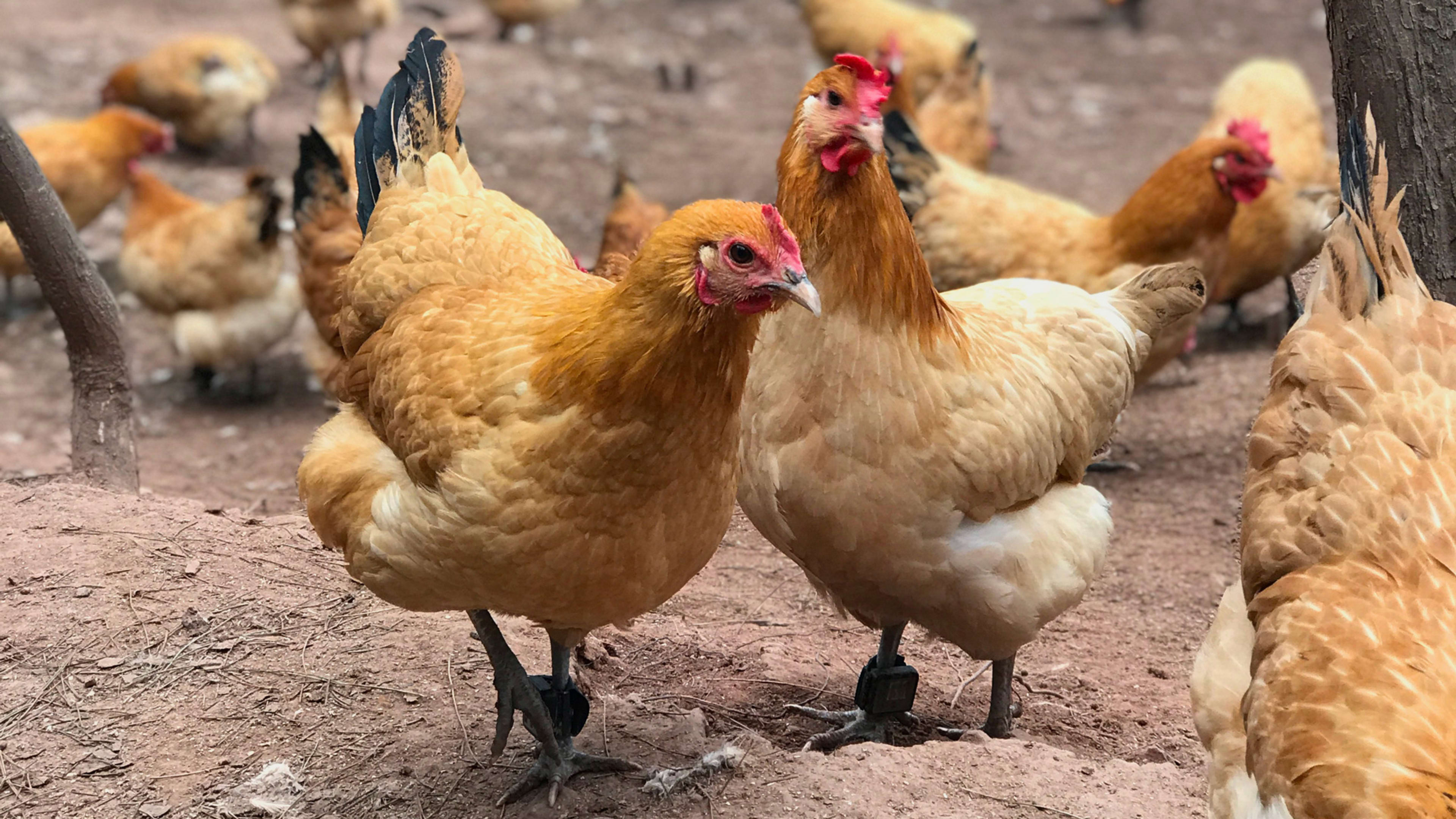If you buy a free-range chicken in the U.S., it’s often hard to be sure that the chicken ever went outside. No farm inspections are required to make the claim, and some companies with certifications–including a Whole Foods supplier–have been accused of selling “free range” birds that were raised on factory farms. In China, now consumers who want to feel good about their chickens have another option: free-range and organic birds raised with an anklet that tracks and reports every aspect of their lives.
“All info related to the chicken can be verified in the blockchain,” says Xuefeng Li, CTO of ZhongAn Technology, the tech incubator of the Chinese insurance company ZhongAn, which developed the technology. The chicken’s age and location, how far it walks each day, air pollution, the quality of the water it drinks, when it’s quarantined, when it’s slaughtered, and other details, are all recorded in the blockchain, the same secure digital ledger used in cryptocurrency transactions.
The meticulous detail of the product, called Gogochicken, is designed to appeal to Chinese consumers who have dealt with a long series of food safety scandals. Suppliers in China have been caught selling rotten and decades-old meat, meat soaked in bleach, rat meat disguised as lamb, and expired meat. Food safety regularly ranks as a top concern.

As an insurance company, ZhongAn recognized that its authentication and traceability system could also help reduce risk for companies that finance and insure farms by providing better data. “The rural market is huge, and the rural financial market is huge as well . . . the agriculture industry has a lack of data accumulation, so it is costly and risky to carry out financial activities,” Li says.
The company started with chicken because of the scale of the market–7 billion chickens are sold each year in China–and because the current tracking equipment works well with chicken, unlike with ducks, for example, which fly and go in the water. But it says that the technology can be expanded to cattle, sheep, pigs, and other livestock, and similar traceability can be applied to crops like tomatoes or watermelons.

American food producers are also beginning to use the blockchain. The Grass Roots Farmers Cooperative, a small group of farmers in Arkansas that sells a meat subscription box, began using the technology in August 2017 to trace how animals were raised. Cargill tested blockchain turkeys for Thanksgiving. But traceable food is arguably moving more quickly in China.
By September 2017, ZhongAn had agreements with 200 farms; by 2020, it hopes to work with 2,500 farms. By letting farmers become part of the Gogochicken brand, the company says that its model is attracting low-income farmers who can’t afford marketing themselves. “They need not [worry about sales] and get higher returns, which leads to rural farms’ wider adoption of the new model,” says Li. “Such a cooperation mode can be used for poverty alleviation in rural areas . . . We do not need to go to farmers–often farmers find us.”
ZhongAn also plans to go beyond blockchain, offering facial recognition software that will allow consumers to preorder a chicken and then watch it grow, remotely, throughout its life.
Recognize your brand’s excellence by applying to this year’s Brands That Matter Awards before the early-rate deadline, May 3.
